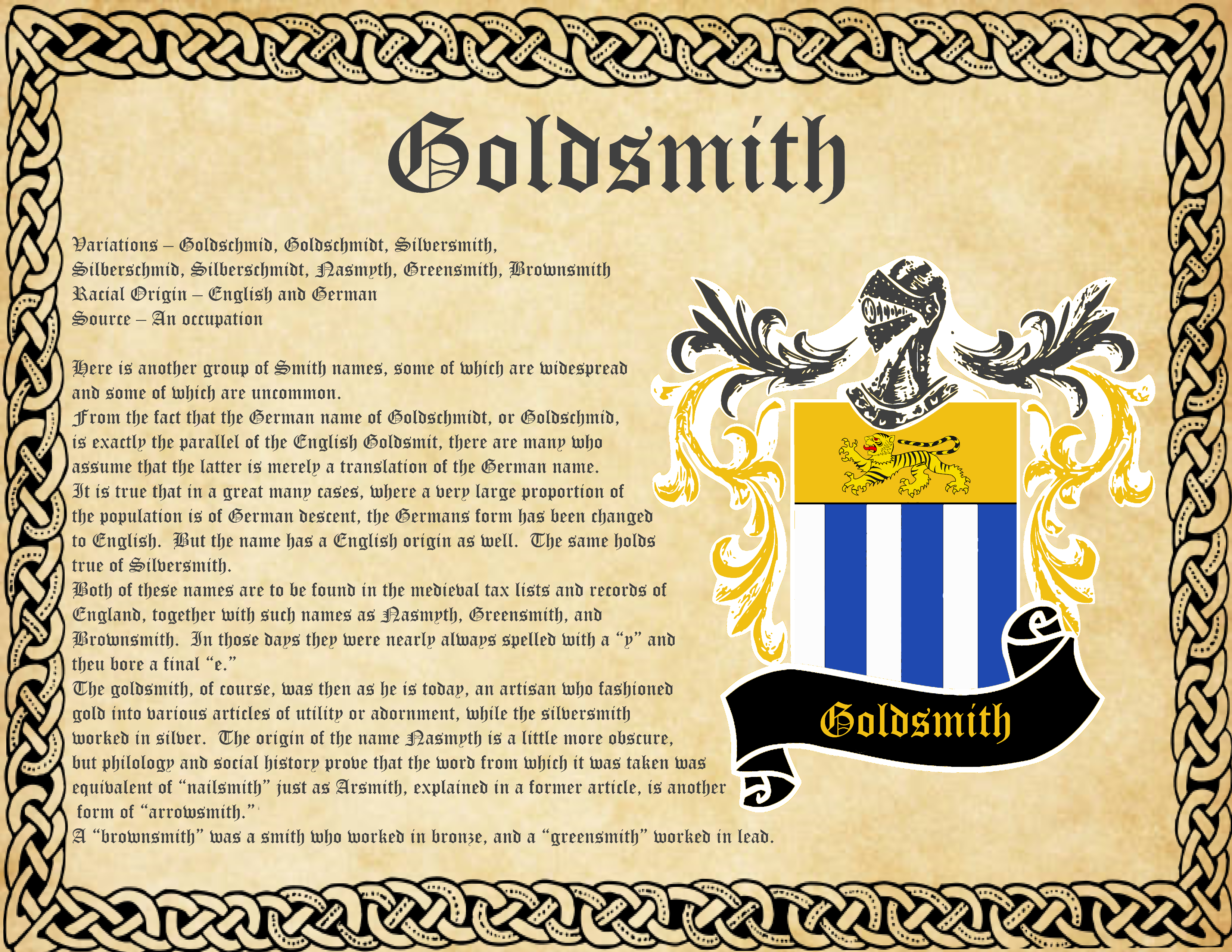Goldsmith
Variations – Goldschmid, Goldschmidt, Silversmith, Silberschmid, Silberschmidt, Nasmyth, Greensmith, Brownsmith
Racial Origin – English and German
Source – An occupation
Here is another group of Smith names, some of which are widespread and some of which are uncommon.
From the fact that the German name of Goldschmidt, or Goldschmid, is exactly the parallel of the English Goldsmit, there are many who assume that the latter is merely a translation of the German name. It is true that in a great many cases, where a very large proportion of the population is of German descent, the Germans form has been changed to English. But the name has a English origin as well. The same holds true of Silversmith.
Both of these names are to be found in the medieval tax lists and records of England, together with such names as Nasmyth, Greensmith, and Brownsmith. In those days they were nearly always spelled with a “y” and theu bore a final “e.”
The goldsmith, of course, was then as he is today, an artisan who fashioned gold into various articles of utility or adornment, while the silversmith worked in silver. The origin of the name Nasmyth is a little more obscure, but philology and social history prove that the word from which it was taken was equivalent of “nailsmith” just as Arsmith, explained in a former article, is another form of “arrowsmith.”
A “brownsmith” was a smith who worked in bronze, and a “greensmith” worked in lead.
